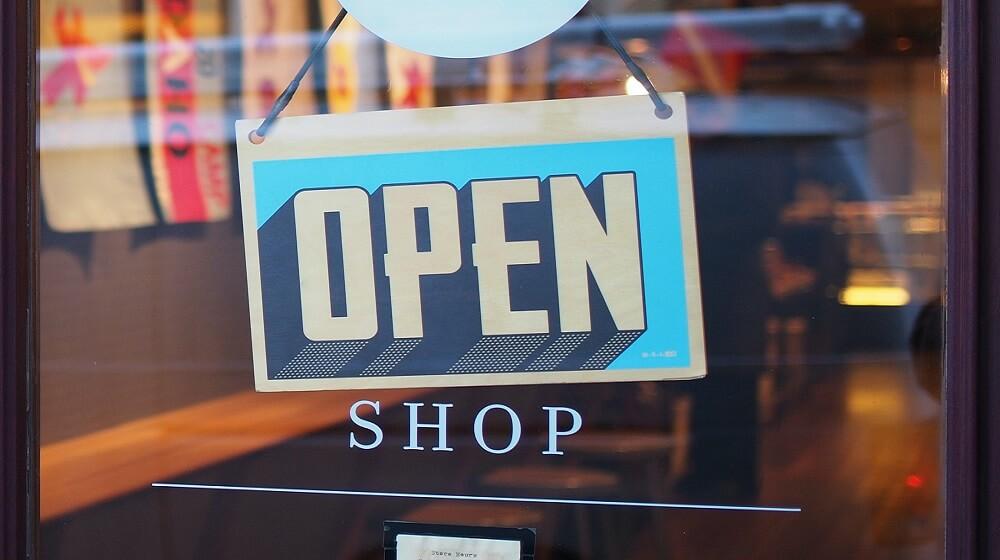For small business owners selling goods, choosing a business location with the right mix of human traffic, visibility and affordability is important. A suitable location for your business can vary based on business type and clientele. Therefore, you need to research on a location that best fits your business objectives. That is the first step in ensuring a promising future for your business!
Read on the learn key factors you need to consider in choosing a business location before signing a lease.
Importance of choosing a business location
Your store location influences how consumers view your company and brand. It also bears practical reasons that can impact the well being of your business revenue and operations.
Having the right business location can maximise revenue and capture a large pool of consumers.
Maximising revenue
Having a storefront helps your business reach your target customers, allowing them to find your products and services easily. While online shopping seems to be a preferred these days, consumers spend significantly more per visit in-store than online. Hence, having the right business location not only helps to increase your customer base, it also increases your business revenue. With COVID-19 lockdowns starting to ease, a physical store can attract consumers looking forward to their long-awaited retail therapy.
Editor’s Note: Want to know how small businesses can thrive in a pandemic? Read this article for 10 tips.
Getting to the right target market
You should choose a spot frequented by your target audience to tap into a good flow of relevant human traffic. For example, locating your convenience store next to a gas station or street corner can win you customers who need fast and easy purchases. A Michelin-star restaurant might draw a bigger crowd in upmarket malls like IFC Mall than along Temple Street in Hong Kong. A good match between your target audience and location means a better chance in capturing the right customer pool for your business.

Factors to consider when choosing a business location
Choosing the right location for your business can easily pave the way for business growth and expansion. Here are seven key factors you need to consider when you search for the perfect spot for your new venture:
Business objectives
Is your storefront for walk-in customers or merely a collection point? Are you selling sophisticated products appealing to high net worth shoppers or more casual apparel for the young?
Find a location that can support your business objectives and products, and offer profitable returns. If you sell household products for a suburban crowd, avoid spaces in prime shopping districts to save on exorbitant rents. For businesses with many existing clients and not relying entirely on walk-in traffic, leasing a space in quieter districts lets you save on rental and offer more privacy to your clients.
Tax and regulatory requirements
Dyson chose to move its headquarter to Singapore because of the country’s favourable tax incentives and benefits for foreign companies. Business owners should consider tax, regulatory requirements and cost of living in a country or city before setting up shop.
These factors can impact how easy or difficult it would be in establishing a profitable business. The socioeconomic situation within each country can also affect the ease of hiring quality staff members for your business. For example, land-scarce Singapore and Hong Kong may be good markets to capture affluent consumers. However, the average wage and leasing cost of commercial property are way higher than that of Malaysia and the Philippines.
Costs and affordability
Changing a business location is difficult and costly. Hence, ensuring a good fit from the beginning through effective analysis processes is important.
Everyone loves a fancy location with high traffic when choosing a business location, but these always come with a big price tag. Can you afford it? Do you really need to be located in that expensive zone?
At this point, go back to your business objective and finances to help you decide whether an expensive lease is going to reap the result you want. Alternatively, instead of relying entirely on walk-in traffic, leverage other marketing and sales strategy in attracting customers.
Proximity to other businesses
Look out for complementary businesses in the vicinity, because their customers and employees could also become your customers. This makes it very convenient for them to get products and services from your store since you’re in the neighbourhood.
Take note of other businesses that will enrich the quality of your company. Are there many reputable brands nearby? Are there popular shops, services and restaurants drawing adequate traffic to the location? These are telltale signs of customers who might visit if you set up your business in the locale.

Neighbourhood and building
There are often restrictions and guidelines when you set up shop in specific neighbourhoods or buildings. Hence, research these spaces and read your lease agreements carefully when you choose a business location. This helps to ensure that any restrictions or guidelines do not pose challenges to your operations. Ultimately, it is about finding the right fit in an environment and a community that complements your brand image and operations.
For example, a restaurant in a mall that limits your daily operating hours to 7pm may hinder you from generating extra income in the evening. Similarly, a live music bar in a residential estate could easily bring on a tsunami of complaints from residents.
Editor’s Note: Running a restaurant business? Find out 13 ways to promote your restaurant to local customers.
Parking and accessibility
In evaluating your business store location, you need to walk in your customer’s shoes and consider how accessible it is for them. Evaluate how easy it is to find your store on foot. Check if the location is well-connected to public transportation networks such as buses, trains and taxis. The lack of accessibility via public transport can put a dent in customer traffic. Chances are, people may not bother visiting your store since they are usually spoilt for choice in this competitive market.
Additionally, check on average parking fees and the availability of parking facilities in the vicinity of your store. Customers who drive are less likely to visit if they cannot find parking, or have to incur steep hourly rates.
Competition in the vicinity
Last but not least, scan the vicinity for competitors that may eat into your market share. Do they have a reputable image and eager fanbase that will make your business tougher? If so, you may want to look elsewhere. However, in some cases, placing yourself amongst specialists in the field could bring a steady flow of serious buyers. For example, tech merchants are gathering themselves in Digital Mall in Petaling Jaya, Malaysia and Funan Mall in Singapore. For these businesses, the purpose is to tap into tech-focused shoppers who are usually congregating in these places. Essentially, whether your competition is a threat or opportunity may simply lie in your business strategy.
Conclusion
Use these seven important tips to guide you along your search for the perfect business location that’ll make your venture thrive. You don’t always have to spend top dollars for a trendy location! Sometimes, with enough research and planning, you can easily make a gold mine out of wherever you set up shop.
Editor’s note: Got questions about putting your idea online? Get instant answers on GoDaddy Asia Facebook Messenger now.






